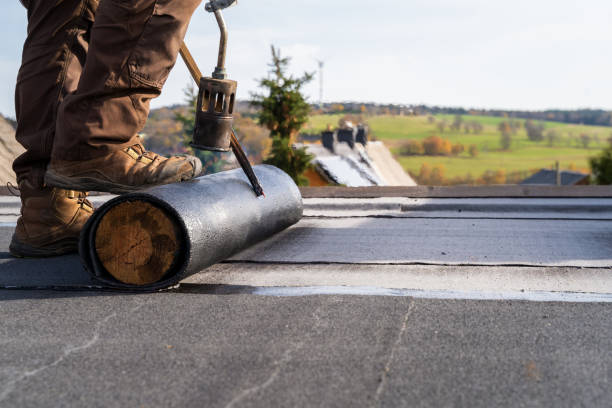Flat roof systems are a popular choice for modern residential homes, offering sleek aesthetics, functional space, and versatile design options. At Integrity Remodeling Roofing and Siding in New York, we specialize in roof installation for flat roofing systems, ensuring durability, weather resistance, and energy efficiency.
This guide explores the best materials and design considerations for residential flat roof installation, helping homeowners make informed decisions for their next roof installation project. Our skilled staff provides specialized solutions to satisfy your needs and raise the value of your property, whether you’re building a new house or adding a flat roof to an existing one.
Flat Roof Installation Options
Some popular residential flat roof installation options are:
1. Built-Up Roofing (BUR)
Built-Up Roofing, often called “tar and gravel,” is a time-tested flat roofing system consisting of multiple layers of asphalt and reinforcing fabrics. BUR provides excellent waterproofing and UV resistance, making it ideal for New York’s variable climate. Its durability and low maintenance make it a cost-effective choice for roof installation.
Average Cost: $10.50 to $16.00 per square foot
Typical Cost for a 1,500 sq. ft. Roof: $15,750 to $24,000
Pros: Durable, excellent waterproofing, UV-resistant
Cons: Heavy, requires professional installation
2. Modified Bitumen Roofing
For increased flexibility and strength, modified bitumen, a single-ply roofing system, mixes asphalt with polymer modifiers. Available in torch-applied, self-adhesive, or cold-applied forms, it’s a versatile option for flat roof installation. Modified bitumen is suggested by Integrity Remodeling Roofing and Siding due to its low maintenance requirements and temperature adaptability.
Average Cost: $11.00 to $16.50 per square foot
Typical Cost for a 1,500 sq. ft. Roof: $16,500 to $24,750
Pros: Flexible, easy to repair, good for temperature changes
Cons: Shorter lifespan than BUR (20–30 years)
3. EPDM (Rubber) Roofing
The synthetic rubber roofing membrane known as EPDM (ethylene propylene diene monomer) is renowned for its resilience to weather and longevity. Its black or white surface options make it energy-efficient, particularly for cooling in New York summers. Because of its affordability and simplicity of installation, EPDM is a common material for flat roofs.

Average Cost: $9.00 to $14.50 per square foot
Typical Cost for a 1,500 sq. ft. Roof: $13,500 to $21,750
Pros: Lightweight, energy-efficient, easy to install
Cons: Susceptible to punctures if not properly maintained
4. TPO (Thermoplastic Polyolefin) Roofing
TPO is a single-ply membrane that offers excellent heat reflectivity and energy efficiency, making it a top choice for eco-conscious homeowners. Its welded seams provide superior strength, ideal for flat roofing systems in urban environments. Integrity Remodeling Roofing and Siding ensures precise TPO roof installation for long-lasting performance.
Average Cost: $10.00 to $15.50 per square foot
Typical Cost for a 1,500 sq. ft. Roof: $15,000 to $23,250
Pros: Energy-efficient, strong seams, UV-resistant
Cons: Relatively new material, long-term durability still under evaluation
5. PVC (Polyvinyl Chloride) Roofing
PVC roofing is a single-ply membrane known for its chemical resistance and durability. Its reflective surface reduces cooling costs, and its flexibility suits complex flat roof designs. PVC is a premium option for homeowners seeking a high-performance flat roof installation.
Average Cost: $12.00 to $18.00 per square foot
Typical Cost for a 1,500 sq. ft. Roof: $18,000 to $27,000
Pros: Chemical-resistant, energy-efficient, durable
Cons: Higher initial cost
Design Considerations for Flat Roof Installation
- Drainage: To avoid water pooling, flat roofs need appropriate drainage systems, such as scuppers or internal drains. A slight slope (1/4 inch per foot) is critical for effective water runoff.
- Insulation: Proper insulation enhances energy efficiency and prevents heat loss. Rigid foam or tapered insulation boards are commonly used in flat roofing systems.
- Ventilation: Adequate ventilation reduces moisture buildup and extends roof lifespan. Integrity Remodeling Roofing and Siding incorporates ventilation solutions during roof installation.
- Aesthetics: Flat roofs offer space for rooftop gardens, solar panels, or HVAC units, enhancing functionality and curb appeal.
- Climate Adaptability: New York’s weather demands materials resistant to heavy snow, rain, and temperature swings. EPDM and TPO are particularly suited for these conditions.
Benefits of Flat Roof Systems
Cost-effective installation, more usable space, and compatibility with contemporary architectural styles are just a few of the special benefits that flat roofing systems provide.

They are easier to maintain and inspect than sloped roofs, and their energy-efficient materials reduce utility costs. With professional flat roof installation from Integrity Remodeling Roofing and Siding, your flat roof will provide long-term durability and aesthetic appeal.
Conclusion
Selecting the ideal flat roofing system is crucial for striking a balance between durability, usability, and beauty. From cost-effective EPDM to premium PVC, each material offers unique benefits tailored to New York’s climate and homeowner needs. Integrity Remodeling Roofing and Siding in New York specializes in professional flat roof installation, delivering high-quality flat roofing solutions that enhance your home’s value and performance. Contact us today to explore these options and design a flat roofing system that meets your vision and budget.
FAQs
- What is the most durable flat roofing material?
Built-up roofing (BUR) and PVC are among the most durable, lasting 30–50 years with proper maintenance, ideal for New York’s harsh weather. - How long does a flat roof installation take?
Flat roof installation typically takes 5–10 days, depending on roof size and complexity. Integrity Remodeling Roofing and Siding ensures efficient, high-quality installations. - Are flat roofs suitable for New York’s climate?
Yes, flat roofs with proper drainage and weather-resistant materials like EPDM or TPO are well-suited for New York’s snow, rain, and temperature fluctuations. - Can flat roofs support additional features like solar panels?
Yes, flat roofs are ideal for solar panels, rooftop gardens, or HVAC units, maximizing usable space with professional roof installation. - How often should a flat roof be maintained?
Flat roofs should be inspected biannually and after major storms to ensure proper drainage and prevent leaks. Regular maintenance extends lifespan significantly.
